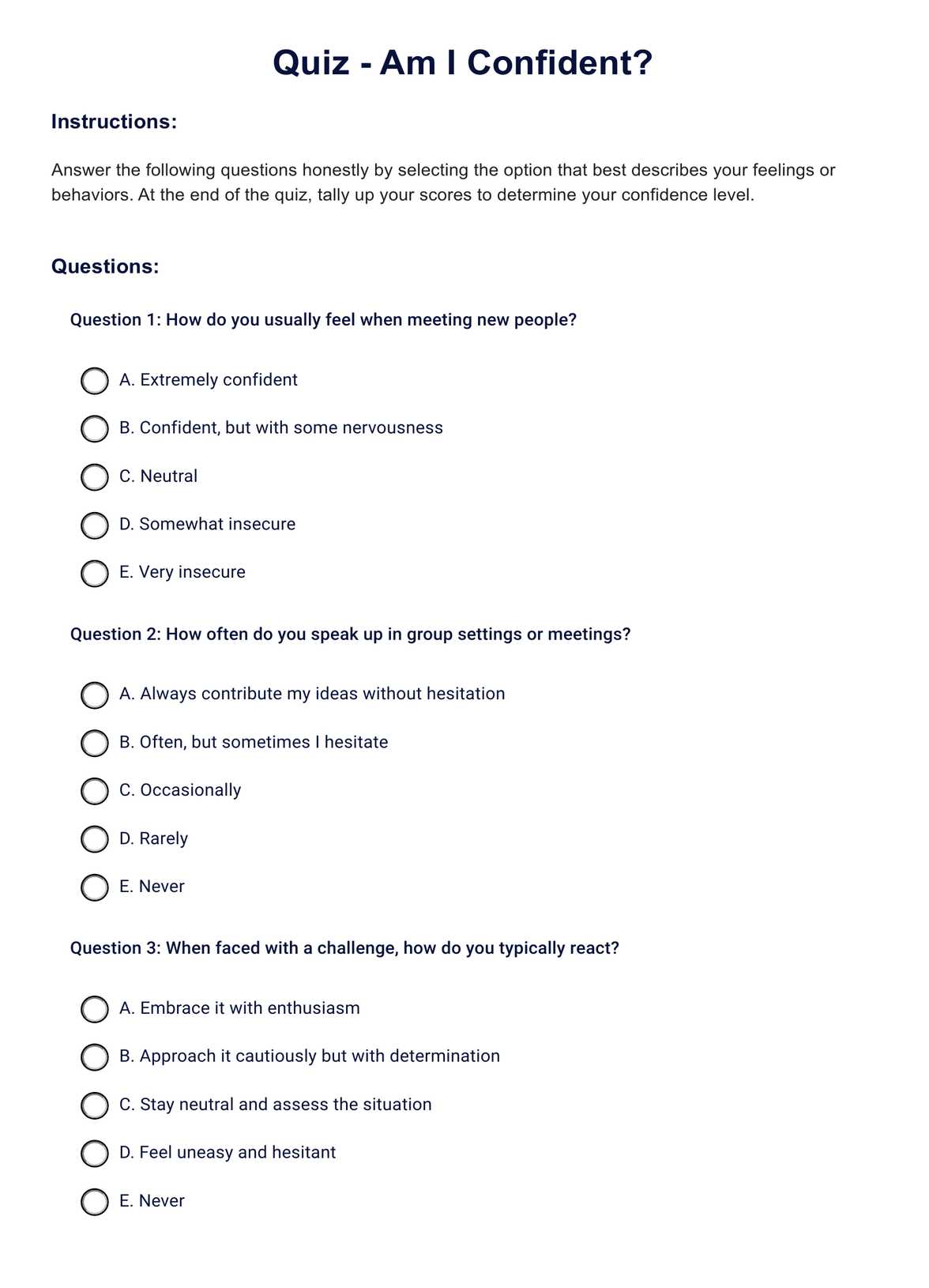Confidence is often rooted in a positive self-perception, a belief in one's abilities, and a willingness to embrace challenges. It is a dynamic combination of self-awareness, resilience, and a positive mindset that empowers individuals to navigate various situations with assurance.

Am I Confident Quiz
Download this free Am I Confident Quiz template from Carepatron to assess your confidence level and learn tips for building self-confidence today.
Am I Confident Quiz Template
Commonly asked questions
Addressing low self-esteem involves challenging negative thoughts, setting realistic goals, and practicing self-compassion. Seeking support from friends, family, or professionals, and engaging in activities that bring a sense of accomplishment can contribute to building a healthier self-image.
While occasional dips in confidence are normal, persistent and debilitating low confidence can impact mental health. It may contribute to conditions like social anxiety or depression. Seeking guidance from mental health professionals can provide strategies to address confidence issues and promote overall well-being.
EHR and practice management software
Get started for free
*No credit card required
Free
$0/usd
Unlimited clients
Telehealth
1GB of storage
Client portal text
Automated billing and online payments











